Go Lean Commentary
The actuality of 2020 has changed the world. Period.
Many of the changes have been bad; but there are some that are shaping up to be good. One such is the emergence of Travel Insurance as a necessary product for visitors to the different Caribbean member-states (islands and coastal countries). Imagine a tourist contracting Coronavirus COVID-19 while vacationing in the Caribbean. How would that complicated situation be managed … and paid for?
The need for Travel Insurance is indisputable.
What exactly is Travel Insurance?
Travel insurance is an insurance product for covering unforeseen losses incurred while travelling, either internationally or domestically. Basic policies generally only cover emergency medical expenses while overseas, while comprehensive policies typically include coverage for trip cancellation, lost luggage, flight delays, public liability, and other expenses.[1]
Cost calculation
Travel insurance, are risk-based, and take into account a range of factors to determine whether a traveller can purchase a policy and what the premium will be. This generally includes destination countries or regions, the duration of the trip, the age of the travellers, and any optional benefits that they require coverage for such as pre-existing medical conditions, adventure sports, rental vehicle excess, cruising, or high-value electronics.[2] Some policies will also take into account the traveller’s estimated value of their trip to determine price. …Journey departure and return conditions
Most travel insurance policies must be purchased prior to departure from home, or from the first departure point (e.g. an airport), depending on the product….Complimentary travel insurance
Some credit card issuers offer automatic travel insurance if travel arrangements are paid for using their credit cards, but these policies are generic and do not take into account personal requirements and circumstances.[5]Common benefits
Medical
In the event of minor injury or illness overseas, medical benefits offer coverage for visits to general practitioners, medicine, ambulance fees, and limited dentistry benefits. In the event of hospitalisation, most travel insurance policies include emergency assistance services, which can offer guarantees of payment to hospitals for treatment, liaise treating doctors, and organise transfers between hospitals or medical evacuations back to the insured person’s country of origin.[6] More comprehensive policies include an emergency companion cover, so that a family member can remain with the insured person while in hospital.In the event of death overseas, medical benefit sections typically include cover for repatriation of remains to insured person’s the country of origin, or a funeral overseas.
…
Compulsory travel insurance
Certain countries require foreign visitors have proof of sufficient travel insurance as a condition for granting a visa or of approving visa-free entry. This includes travellers applying for a Schengen Area or UAE visa, and all visitors to Cuba, Turkey and Belarus.[21] Thailand[22] and Egypt[23] have announced plans to introduce similar requirements. Tour companies and cruise providers may also require passengers possess a minimum level of travel insurance before the traveller can commence their journey. – Source: Retrieved November 28, 2020 from https://en.wikipedia.org/wiki/Travel_insurance.
As related here in the foregoing, some countries have mandated Travel Insurance; we see now that a number of Caribbean member-states have followed suit, as a mitigating strategy to the actualities of the Coronavirus COVID-19 pandemic. See here, the details for Jamaica and the Bahamas:
Title 1: “This must become international”: Jamaica launches mandatory protection program
By: Cindy Sosroutomo
KINGSTON, JAMAICA — Jamaica has announced a groundbreaking – and mandatory – new program for all foreign travellers, effective next month [November 2020].
Jamaica Cares, a joint collaboration between the Global Tourism Resilience & Crisis Management Centre (GTRCMC), the Global Travel and Tourism Resilience Council, and Global Rescue, is being hailed as a first-of-its kind traveller protection and emergency services program designed to protect both visitors and the people of Jamaica.
For approximately US$40, the end-to-end program provides all nationalities who are entering Jamaica with non-Jamaica passports with access to compulsory traveller protection and emergency medical services. It is comprised of two major components:
- All Hazards program: Case management, transport logistics, field rescue, evacuation, and repatriation for medical emergencies, including COVID-19 and other crises up to and including natural disasters
- COVID-19-specific program: International health coverage up to US$100,000 for visitors traveling to and from Jamaica, and on-island health coverage up to US$50,000
In a virtual press conference earlier this morning, Dan Richards, CEO of Global Rescue, confirmed that the fee will go towards supporting its new Jamaica Operations Centre (JOC) based in Montego Bay, and additional expansion to other locations as necessary.
“The JOC will ensure a rapid boots-on-the-ground response capability for dealing with crises when they occur, including coordinating our COVID-19 response in Jamaica and the region,” said Richards. “We envision head count to grow as we grow out the program to Jamaica and, ultimately, throughout the region and potentially the world.
“We will not rest until we have accomplished our mission, and that is the restoration of Jamaican travel and tourism to pre-COVID-19 levels and ongoing support thereafter.”
Jamaica’s Minister of Tourism, Edmund Bartlett, stressed the need for a proactive approach to global tourism recovery, saying that “destination assurance” is becoming a critical pre-condition for travel today.
“Trust has to be earned, we can only do that with action – not just words – through innovation, partnership and empathy,” said Bartlett. “As thought leaders, Jamaica has proactively taken a vital role in recovering and building the spirit of travel by restoring the trust and confidence of travellers in our destination. Jamaica Cares represents another prong in our COVID resilience and has been designed very specifically and deliberately. The program’s protocols will ensure our ability to welcome travellers to Jamaica safely.”
Bartlett expects the program to be implemented by U.S. thanksgiving, and confirms that Jamaica has already begun speaking with other countries that wish to follow suit. More information regarding how travellers can access the program and when payment will be required will come in the next few weeks, though Bartlett said that “the market will be given enough time to be able to respond to whatever the requirements are to comply.”
For travellers who already have travel insurance in place, Richards said that Jamaica Cares is an additive program.
“The extent that the individual already has a mechanism in place, either a service provider or a travel insurance package that they’ve already purchased, our personnel will work with whatever insurance they have to deconflict that program with ours and to make sure the delivery of services is seamless,” said Richards. “At the end of the day, what we are aiming for is that seamless delivery of service with respect to these types of issues.”
Also joining the press conference was Gloria Guevara, president & CEO of the World Travel & Tourism Council (WTTC), and Dr. Taleb Rifai, Co-Chair of the GTRCMC and the Global Travel and Tourism Resilience Council, and former Secretary-General of the United Nations’ World Tourism Organization (WTO).
Guevara stressed the need for the global community to eliminate quarantines so that “people can freely move around”, and said that today’s announcement is an important step towards resuming international travel.
“From WTTC, we believe that we have to learn how to co-exist with this virus, and we cannot wait for a vaccine to be ready and be deployed around the world,” she said. “We see Jamaica Cares as a very important initiative that will be a good example around the world and will hopefully be replicated by other countries.”
Rifai also hailed the program, calling it a great initiative between the public and private sectors.
“Now it’s in the hands of governments,” he said. “This concept must become international and we must have most governments adhere to it. It’s the only way we can travel safely and have peace of mind.”
Source: Posted Monday, October 26, 2020; retrieved November 15, 2020 from: https://www.travelweek.ca/news/this-concept-must-become-international-jamaica-launches-mandatory-protection-program/
———-
Title 2: Travel Insurance for the Bahamas
Sub-title: Do I Need Travel Insurance for the Bahamas?“Bermuda, Bahama, come on pretty mama…” It’s no surprise the 1988 Beach Boys hit “Kokomo” features the Bahamas so prominently. Even today, the island getaway remains one of the most popular vacation destinations among travelers.
In light of recent hurricane activity in the area and COVID-19 pandemic, our customers are increasingly asking if travel insurance is required for trips to the Bahamas. As of November 14, 2020, travel health insurance is required for all incoming visitors. The cost for the mandatory insurance is included in the price of the Travel Health Visa that all tourists are required to apply for before entry. Travelers should keep in mind that this required coverage may be limited, so we recommend purchasing additional coverage to cover non-health-related expenses, like travel delays or baggage loss, for example.
Concerns about illness, injuries, and medical issues have historically been the top reasons those traveling to the Bahamas ask about insurance. However, the destruction caused by Hurricane Dorian has changed the way people are thinking about coverage for the islands. Weather is now the number one concern driving Bahamas trip insurance inquiries. Unforeseen weather events can wreak havoc on travel plans by causing delays, cancellations, and even total destruction of your accommodations in some cases. Choosing an insurance plan that will cover these types of events is your best defense.
As mentioned above, many travelers to the Bahamas buy coverage to supplement or replace their domestic health insurance while they’re away. Most domestic health insurance providers do not provide coverage while you are out of the country. For this reason, those taking a trip to the Bahamas frequently purchase travel medical plans. This way, they can stay protected against hefty out-of-pocket costs as a result of unforeseen illnesses or injuries.
While healthcare and weather concerns are the main reasons travelers purchase trip insurance for the Bahamas, there are additional reasons worth considering. For example, the Bahamas is a popular destination among cruisers, so you might consider choosing a plan that incorporates cruise coverage if you plan to set sail. Other travelers may be flying internationally to reach the islands. In these cases, flight insurance can help travelers with unexpected issues, including delays, interruptions, and missed connections.
Many comprehensive travel insurance plans include specialized coverages, like baggage delay or loss, emergency medical evacuation, or dental care while abroad. It’s important to think about which coverages make sense for your Bahamian vacation or business trip before choosing a plan.
How Much is Travel Insurance for the Bahamas?
One of the most common questions we get from customers planning a visit to the Bahamas is “how much travel insurance will cost?” The cost of the required travel insurance is now included in the Bahamas Travel Health Visa. However, the cost of a plan with additional coverage varies due to several factors. First, the number of travelers in the group may affect the rate. In general, policies that cover more than one traveler have an increased cost. Second, traveler ages can play a role in determining pricing, as older travelers typically carry more risk as a result of medical concerns. This increased risk can translate to a higher cost, especially if one or more travelers in the group have any pre-existing conditions. Another important factor is the duration of your trip. Traveling for a longer period of time usually means there are more opportunities for travel hiccups. So, a plan that covers a week-long trip or vacation will be considerably cheaper than a plan that covers long-term travel. One of the most significant factors for determining the cost of travel insurance is the kind of coverage the plan offers. Typically, the price of a plan will increase for each coverage it includes.Source: Retrieved November 16, 2020 from: https://www.insuremytrip.com/destinations/bahamas-travel-insurance/
The “pangs of distress” of this pandemic rages on. Leave well enough alone and “things go to hell”: residents and citizens alike end up in the Emergency Room and the ICU. There is the need for therapeutics, oxygen, breathing aids, ventilators and even lung transplants.
Leave well enough alone and things go from worse to worst.
We must act … before, during and after affliction. Travel Insurance is a good Way Forward. See the documented experiences of a Frequent Traveller-Couple in the Appendix VIDEO below.
Change is afoot! There is still the need for touristic hospitality while pragmatically addressing the real risk of this pandemic.
Expect more Caribbean member-states and cruise lines to follow this model, individually. How about collectively? Is there a need for a regional coordination of tourism activities and risk management?
Yes, indeed …
We needed this construct before COVID-19 … and we will need it after COVID-19. We simply need a strong regional foundation for economics, security (Public Safety) and governance, This has been the assertion since the publication of the 2013 book Go Lean…Caribbean. The 30 member-states of the region must collaborate, consolidate and confederate their tourism promotion and protection operations. This collectivity will create leverage across the entire regional base.
The Go Lean book serves as a roadmap for that regional construct: the Caribbean Union Trade Federation (CU) and the Caribbean Central Bank (CCB). So why not also a locally-regionally owned insurance carrier; maybe even a CU/CCB subsidiary. We should be able to keep the profits here at home.
In a previous Go Lean commentary, from June 16, 2018, it was related how …
“the world is telling the Caribbean: Better band together to assuage your challenges. We are united in affliction, we might as well be united in solutions. Yes, it is no longer optional for our region to confederate as a Single Market.”
Confederation is not a bad thing! In a different previous blog-commentary from December 7, 2017, it was asserted that our Caribbean member-states all suffer from the same inadequate infrastructure, and thusly need to benefit from regional empowerments. Yes, the effect of regional integration could even be an Increased Caribbean Tourism Market Share. That commentary quoted:
It’s time to take inventory of Caribbean tourism:
It has been found wanting! …
It has been weighed in the balance; it has been measured …
Tourism is the current dominant industry; the goal is to “stand on the shoulders” of previous accomplishments, add infrastructure not possible by just one member-state alone and then reap the benefits. Imagine this manifestation in just this one new strategy: inter-island ferries that connect all islands for people, cars and goods.
The movement behind the book Go Lean … Caribbean seeks to reboot the economic engines of the Caribbean member-states. So while tourism is the region’s primary economic driver, it is inadequate for providing the needs of the people in the region, and inadequate for dealing with the crisis of pandemics. We must do better!
The likelihood of more pandemics/epidemics in the Caribbean is great. We have already had to contend with:
The Go Lean book explains further that the Caribbean region must install a security apparatus to prepare the economic engines, with the directive to prepare and respond to pandemic and natural disasters. The efficiency and effectiveness of a Caribbean Emergency Management Agency must be streamlined to ensure the world that there is business continuity of our systems of commerce. This quotation is derived from the Go Lean book at Page 184:
Modeled after FEMA in the US, this agency will be charged with the preparation, response and reconstruction for the regions for the eventual manifestations of hurricanes, earthquakes, tsunamis, flooding and other declared disasters, natural and man-made like medical epidemic, drought, pollution, oil spills, terrorism, etc.
This is what it means to be a technocracy, to promote the arts and sciences of Professional Emergency Management; as explained further at Page 64:
The CU treaty calls for a collective security agreement for the Caribbean member-states to prepare-respond to natural disasters, emergency incidents and assuage against systemic threats against the homeland. The CU employs the professional arts and sciences of Emergency Management to spread the costs and risks across the entire region. Outside of hurricanes or earthquakes, the emergency scope includes medical trauma, pandemic incidents and industrial accidents (i.e. oil or chemical spills) – any scenario that can impact the continuity of the economic engines and/or community.
This commentary describes the dynamics of a regional tourism promotion and protection. Yes, managing regional tourism means optimizing the planning and response for pandemics and natural disasters. As we have asserted time and again, this is no longer optional for this Caribbean region. We must now invest in the earnest effort for integration and collaboration. We must have the leverage to spread the costs, risks and premium base across the entire Caribbean region. Only then will the rest of the world know that a trip to the Caribbean is safe, risk-free and rewarding.
The Go Lean movement has previously detailed many related issues and advocacies for regional tourism management. Consider this sample of previous blog-commentaries:
| https://goleancaribbean.com/blog/?p=20561 | Toxic Environment – Opposite of ‘Diversity & Inclusion’ |
| https://goleancaribbean.com/blog/?p=19409 | Coronavirus: ‘Clear and Present’ Threat to Economic Security |
| https://goleancaribbean.com/blog/?p=19217 | ‘Live and Let Live’ – Allowing some Localism for Touristic Administrations |
| https://goleancaribbean.com/blog/?p=18831 | Opportunity: Supply Cruise Line with their Food needs |
| https://goleancaribbean.com/blog/?p=17919 | ‘Be our Guest’ – But the Rules of Hospitality damage Societal Ethics |
| https://goleancaribbean.com/blog/?p=17072 | Caribbean Cruise Ports can be ‘Held Hostage’ without Collective Bargaining |
| https://goleancaribbean.com/blog/?p=15521 | Caribbean Unity? What a Joke – Tourism Missteps Again and Again |
| https://goleancaribbean.com/blog/?p=15380 | Industrial Reboot – Cruise Tourism 2.0 – A Better End-Product for All |
| https://goleancaribbean.com/blog/?p=14761 | Flying the Caribbean Skies – Optimizing the Regional Air Travel Ecosystem |
| https://goleancaribbean.com/blog/?p=12879 | Disaster Preparation: ‘Rinse and Repeat’ |
| https://goleancaribbean.com/blog/?p=11544 | Forging Change in the Cruise eco-system: Collective Bargaining |
| https://goleancaribbean.com/blog/?p=6341 | Tourism Stewardship — What’s Next? |
| https://goleancaribbean.com/blog/?p=5210 | Cruise Ship Commerce – Getting Ready for Change |
| https://goleancaribbean.com/blog/?p=235 | Tourism’s changing profile |
We have to get along with our neighbors better; we have to “share the load”.
The Go Lean book quotes the Singer-Songwriter Bill Withers in his 1970 Hit Song “Lean On Me”. (Bill Withers died earlier in 2020). Art imitates Life and Life imitates Art as the song lyrics explain, here:
If there is a load you have to bear
That you can’t carry
I’m right up the road
I’ll share your load
If you just call me.
If one or two Caribbean countries adapt a mandatory Travel Insurance scheme, then really, all countries should consider. That universality can create more demand; a greater demand can create greater supply options; greater supply options can create better pricing and quality options.
This is Travel Insurance 101.
This is Economics 101.
People will get sick; people will die. Be prepared!
So we must reform and transform the Caribbean’s societal engines so as to assuage the dangers of global pandemics and natural disasters. This is the quest of the Go Lean roadmap. and this is not just a pipe dream; it is conceivable, believable and achievable for our regional stakeholders to do better and be better with regional tourism promotion and protections.
All Caribbean stakeholders – residents and tourists alike – are urged to lean-in to this roadmap for change … and empowerment. We can make the region a better place to live work and play. 🙂
Sign the petition to lean-in for this roadmap for the Caribbean Union Trade Federation.
About the Book
The book Go Lean…Caribbean serves as a roadmap for the introduction and implementation of the technocratic Caribbean Union Trade Federation (CU) and the Caribbean Central Bank (CCB), for the elevation of Caribbean society – for all member-states. This CU/Go Lean roadmap has these 3 prime directives:
- Optimization of the economic engines in order to grow the regional economy to $800 Billion and create 2.2 million new jobs.
- Establishment of a security apparatus to ensure public safety and protect the resultant economic engines.
- Improve Caribbean governance to support these engines, including a separation-of-powers between the member-states and CU federal agencies.
The Go Lean book provides 370-pages of turn-by-turn instructions on “how” to adopt new community ethos, plus the strategies, tactics, implementations and advocacies to execute so as to reboot, reform and transform the societal engines of Caribbean society.
Download the free e-Book of Go Lean … Caribbean – now!
Who We Are
The movement behind the Go Lean book – a non-partisan, apolitical, religiously-neutral Community Development Foundation chartered for the purpose of empowering and re-booting economic engines – stresses that reforming and transforming the Caribbean societal engines must be a regional pursuit. This was an early motivation for the roadmap, as pronounced in the opening Declaration of Interdependence (Pages 12 – 13):
x. Whereas we are surrounded and allied to nations of larger proportions in land mass, populations, and treasuries, elements in their societies may have ill-intent in their pursuits, at the expense of the safety and security of our citizens. We must therefore appoint “new guards” to ensure our public safety and threats against our society, both domestic and foreign. The Federation must employ the latest advances and best practices … to assuage continuous threats against public safety. …
xi. Whereas all men are entitled to the benefits of good governance in a free society, “new guards” must be enacted to dissuade the emergence of incompetence, corruption, nepotism and cronyism at the peril of the people’s best interest. The Federation must guarantee the executions of a social contract between government and the governed.
xvi. Whereas security of our homeland is inextricably linked to prosperity of the homeland, the economic and security interest of the region needs to be aligned under the same governance. Since economic crimes … can imperil the functioning of the wheels of commerce for all the citizenry, the accedence of this Federation must equip the security apparatus with the tools and techniques for predictive and proactive interdictions.
xxiv. Whereas a free market economy can be induced and spurred for continuous progress, the Federation must install the controls to better manage aspects of the economy: jobs, inflation, savings rate, investments and other economic principles. Thereby attracting direct foreign investment because of the stability and vibrancy of our economy.
Sign the petition to lean-in for this roadmap for the Caribbean Union Trade Federation.
——————
Appendix VIDEO – Travel insurance 2020 don’t make the mistake traveling without travel insurance – https://youtu.be/nWlWTy3kAEE
Jerry Brown Travels
Published July 12, 2020 – Understanding travel insurance protect yourself by using international travel insurance. COVID-19 has changed our lives and the way we travel.
Why should I consider international travel medical insurance?
Buying a travel medical insurance plan is a smart choice for international travelers. When you’re far from home, this type of plan provides insurance benefits designed for travelers and non-insurance travel assistance services.
Travel with Us on YouTube https://goo.gl/SCHrdw
Subscribe Now – It’s FREE: Patreon: https://www.patreon.com/jerrybrowntra…
Follow us on Facebook https://www.facebook.com/JerryBrownTr…
Want to improve your Spanish now? get 5% off: https://travelspanishconfidence.com/?…
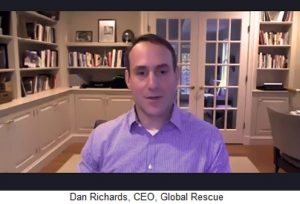
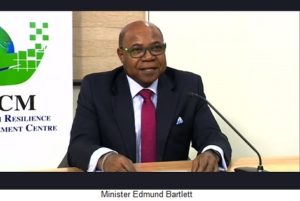
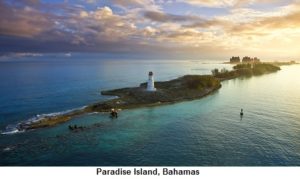
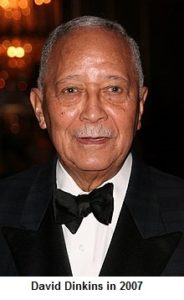 The world is mourning the passing of David N. Dinkins, the former Mayor of New York City – the first and only Black Man to hold that position. We can tell a lot about the measure of the man by taking note of the honors given to him at the time of his death. In this case, it is a …
The world is mourning the passing of David N. Dinkins, the former Mayor of New York City – the first and only Black Man to hold that position. We can tell a lot about the measure of the man by taking note of the honors given to him at the time of his death. In this case, it is a …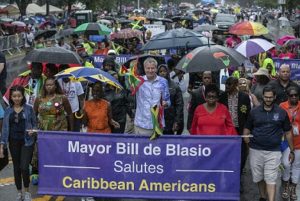
 Nope! This foreign land here, the United States of America is accepted as their New Home. This is their destination. This is where they want to plant themselves and then
Nope! This foreign land here, the United States of America is accepted as their New Home. This is their destination. This is where they want to plant themselves and then 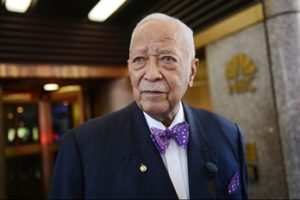 The Public Advocate noted that Dinkins assumed his role in City Hall and in history at a time when the city faced compounding crises of economic turbulence, racial injustice, and systemic failings in housing, policing and healthcare, among other things.
The Public Advocate noted that Dinkins assumed his role in City Hall and in history at a time when the city faced compounding crises of economic turbulence, racial injustice, and systemic failings in housing, policing and healthcare, among other things.
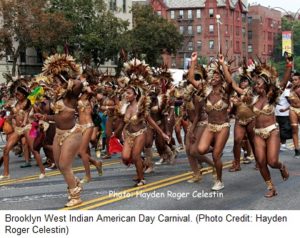
 Dinkins was born in
Dinkins was born in 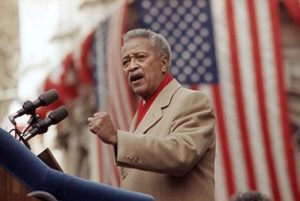 Dinkins entered office in January 1990 pledging racial healing, and famously referred to New York City’s demographic diversity as a “gorgeous mosaic”.
Dinkins entered office in January 1990 pledging racial healing, and famously referred to New York City’s demographic diversity as a “gorgeous mosaic”.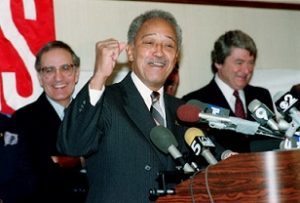 In 1993, Dinkins lost to
In 1993, Dinkins lost to 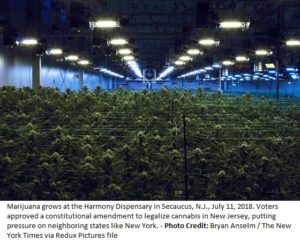

 Just 10 years ago, recreational cannabis was illegal in all 50 states, but that started to change in 2012, when Colorado and Washington became the first states to legalize marijuana for recreational use. At the time, California, which has one of the biggest and oldest marijuana markets in the country, allowed only medicinal use of cannabis.
Just 10 years ago, recreational cannabis was illegal in all 50 states, but that started to change in 2012, when Colorado and Washington became the first states to legalize marijuana for recreational use. At the time, California, which has one of the biggest and oldest marijuana markets in the country, allowed only medicinal use of cannabis.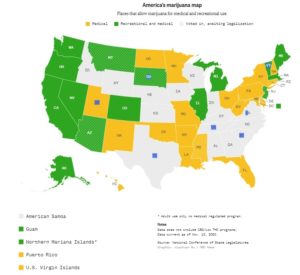
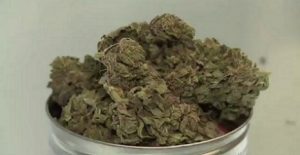 Caribbean stewards – government and community leaders alike – have just a little time to get ready for more societal Chaos brought on by recreational marijuana; (and possibly other recreational drugs – see Appendix VIDEO).
Caribbean stewards – government and community leaders alike – have just a little time to get ready for more societal Chaos brought on by recreational marijuana; (and possibly other recreational drugs – see Appendix VIDEO).



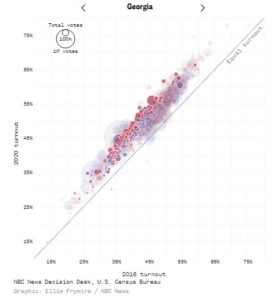
 Shut Up … all of you in the Peanut Gallery.
Shut Up … all of you in the Peanut Gallery.

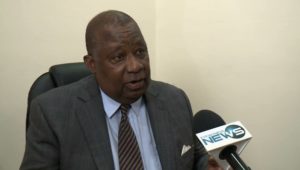 “This election I think has another dimension to it because our main industry is tourism, which is dependent on the administration’s view of containing the pandemic in a sense that unless the US president can control, [the US] will continue to have a very depressed economy, meaning high unemployment, people not working, and people running down savings,” he said.
“This election I think has another dimension to it because our main industry is tourism, which is dependent on the administration’s view of containing the pandemic in a sense that unless the US president can control, [the US] will continue to have a very depressed economy, meaning high unemployment, people not working, and people running down savings,” he said.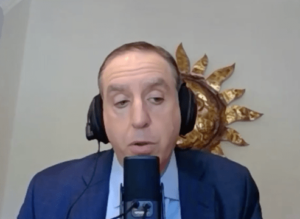 The impact of the pandemic on today’s election, ranging from voter turnout to whether it will be a key point on which voters will base their choice, remains to be seen.
The impact of the pandemic on today’s election, ranging from voter turnout to whether it will be a key point on which voters will base their choice, remains to be seen.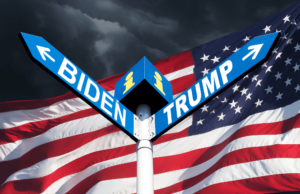 So in this editorial-article, the protagonist recommended the POTUS selection of Joe Biden from a pandemic protection perspective, but Donald Trump from a laissez-fare Offshore Banking regulation perspective.
So in this editorial-article, the protagonist recommended the POTUS selection of Joe Biden from a pandemic protection perspective, but Donald Trump from a laissez-fare Offshore Banking regulation perspective.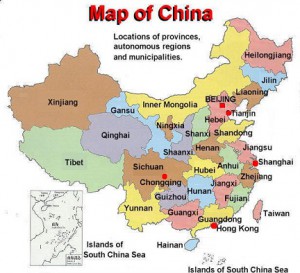

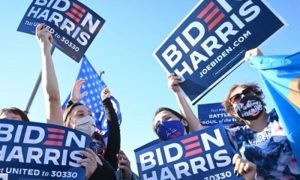

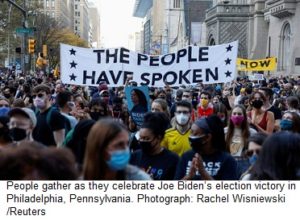
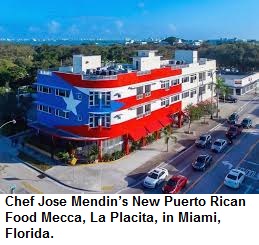 Perez’s recollection — a storm victim reminding him that “Puerto Ricans are Americans” — was part of Democrats’ outreach in Wynwood, a part of Miami once considered a Boricua enclave. But the effort proved to be too late for many Puerto Ricans. Instead of gaining support among Puerto Ricans, Democrats lost ground. Four years after winning Florida by 113,000 votes, Trump won it again on Nov. 3 by triple that amount.
Perez’s recollection — a storm victim reminding him that “Puerto Ricans are Americans” — was part of Democrats’ outreach in Wynwood, a part of Miami once considered a Boricua enclave. But the effort proved to be too late for many Puerto Ricans. Instead of gaining support among Puerto Ricans, Democrats lost ground. Four years after winning Florida by 113,000 votes, Trump won it again on Nov. 3 by triple that amount.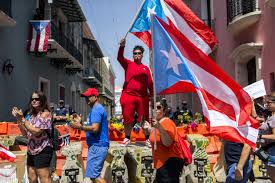 Trump’s numbers even surpassed the number of Puerto Ricans who in Florida’s 2018 U.S. Senate race supported Republican Rick Scott. Odio said Scott received about 29% of the Puerto Rican vote after visiting the island seven times after Maria, ahead of his election. In that election, those numbers were enough to help Scott edge a win over former U.S. Sen. Bill Nelson in a razor-thin election that went to a recount.
Trump’s numbers even surpassed the number of Puerto Ricans who in Florida’s 2018 U.S. Senate race supported Republican Rick Scott. Odio said Scott received about 29% of the Puerto Rican vote after visiting the island seven times after Maria, ahead of his election. In that election, those numbers were enough to help Scott edge a win over former U.S. Sen. Bill Nelson in a razor-thin election that went to a recount.